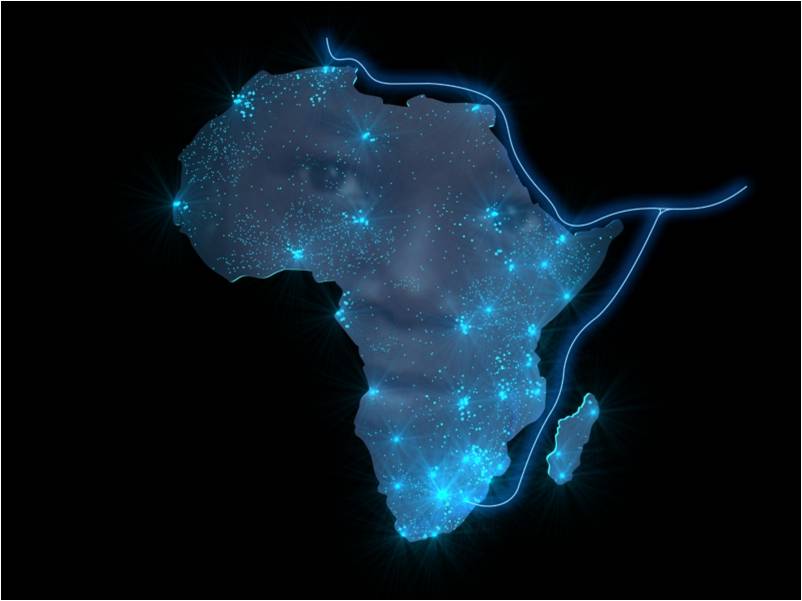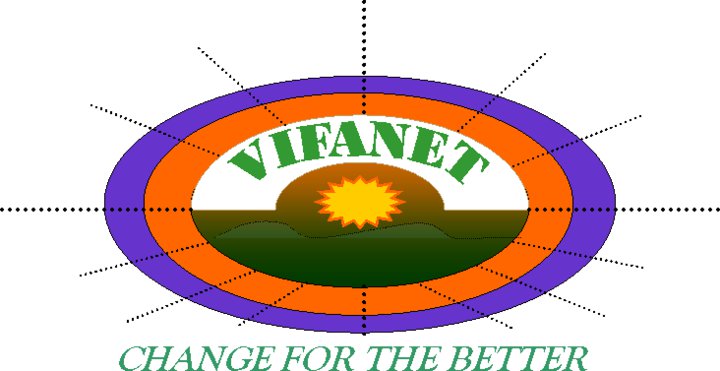The African Declaration Drafter’s Group is pleased to present the African Declaration on Internet Rights and Freedoms which will be released on September 4 at the Internet Governance Forum (IGF) in Istanbul, Turkey, and on September 8 at Highway Africa Conference in Grahamstown, South Africa.
Kenyan Human Rights Networks Deploy ICT Platforms in their ICT4Democracy Work
Two Human Rights Networks (HURINETS) working with the Kenya Human Rights Commission (KHRC) to improve grass roots based organisations’ and their memberships’ understanding of the commitment to building a human rights society have deployed a crowd map, blogs and social media tools to promote their work.

Laikipia HURINET located in Laikipia in the South Rift Region of Kenya works to empower the Laikipia County Community through promotion of human rights, free information dissemination, training, and networking. The HURINET, also known as the Vision Facilitators Network (VIFANET) in June launched https://laikipiacivicaction.crowdmap.com/.
Meanwhile, Kwale HURINET is documenting its work on child rights at www.genesisforhumanrights.wordpress.com. Kwale HURINET is located in Kwale on South Coast of Kenya. Their work focuses on civic education on the implementation of the Constitution of Kenya 2010 with special emphasis on the Bill of Rights, devolution, leadership and integrity among other constitutional provisions; para-legal services on child rights and labour; security, equality and justice.
Read the full report here.
This article was published on July 24, 2012, about the ICT4Democracy in East Africa project, which brings together various partners in the region – among them CIPESA.
East African Region New Media and Human Rights Institute workshop
In collaboration with the African Human Rights Consortium, the Kenya Human Rights Commission (KHRC) conducted a four-day new media, research and advocacy workshop aimed at scaling-up the use of ICTs in human rights and democracy within East Africa. The workshop attracted 14 participants drawn from civil society and media in Kenya, Uganda, Ethiopia, Tanzania and Burundi. During the workshop, KHRC took the opportunity to share information on the activities of the ICT4Democracy in East Africa network attracting a lot of interest from participants. Emphasis was placed on the importance of involvement of civil society actors in various ICT forums and projects.
Civil society organisations in East Africa were urged to embrace ICTs in their advocacy interventions.
This article was published on July 24, 2012, about the ICT4Democracy in East Africa project, which brings together various partners in the region
Digitalizing Democracy: Initiatives in East Africa
By: Caroline Wamala
A number of organizations in east Africa are using ICT to hold leaders accountable, fight corruption, monitor service delivery, and contribute to building a democratic culture. The East Africa ICT4Democracy Network, supported by Spider, was launched in June 2011 to enable the participating organisations to have stronger impact, build a more sustainable initiative, and further enhance people’s capacity to act and participate in democratic processes.
Participating organisations are:
- iHub, Kenya
- Women of Uganda Network,
- Kenya Human Rights Commission,
- Transparency International, Uganda
- Commission for Human Rights and Good Governance
- Collaboration on International ICT Policy for Eastern and Southern Africa, Uganda
For further information about the projects, visit www.ict4democracy.org.
The core problem is that despite the concerted efforts by international agencies, governments and local donors, ignorance prevails about human and citizen rights among the majority of communities. This perpetuates a culture of poor or bad service delivery across all sectors.
“In the developed world generally everyone is aware that water is a human right, health is a human right, in sub-Saharan Africa, or east Africa, people are unaware of these rights, clean water, or access to health is seen as a favour.”
Ashnah – CIPESA at M4D2012 New Delhi
Informing people about their rights to government services is the first step to engaging communities in holding their government accountable to better service delivery.
“So we are not just demanding accountability, we are making communities aware that you are entitled to freedom of expression, entitled to clean water, health etc. so we are engaging them, and they are participating, they are knowledgeable…we are going beyond survellieng and hold someone accountable.”
Ashnah – CIPESA at M4D2012 New Delhi
Are ICTs the road to democracy? While ICT can raise awareness on good governance, spread information on human and citizen rights and help monitor service delivery, it is “merely an amplifier, that acts within the environment it is embedded in. ICT is not the panacea none of our projects think or say that technology is the answer, technology is probably solving 5% of the problem, the other 95% requires us as a people to come together. As long as the cohesion and symbiotic relationships in this network continue these projects will explode into some serious change and become sustainable, we are working together and mobile technology is creating effective change and the same model can be applied in other places, we are building something by learning from each other.”
Angela and Hilda – iHub at the M4D2012 Conference in Delhi
Caroline Wamala is Project officer at Spider and post-doc researcher at Karlstad University.
This article was published by the Swedish Programme on ICTs for Developing regions (SPIDER) on April 18, 2012, about the ICT4Democracy in East Africa project, which brings together various partners in the region – among them CIPESA – Editor


